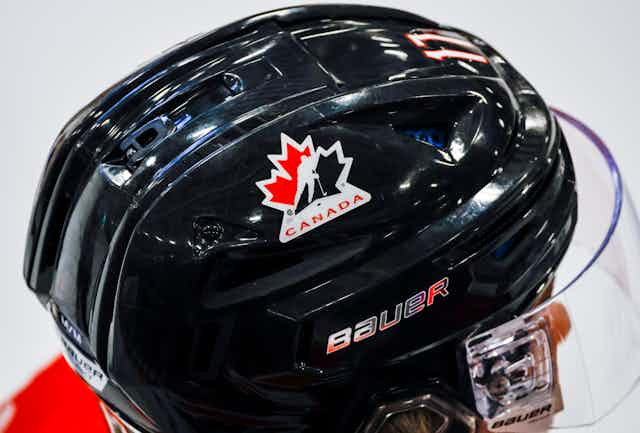The departure of Hockey Canada CEO Scott Smith and the resignation of the sporting body’s entire board of directors are the latest signs of the deep problems within Canadian hockey.
In a news release announcing the resignations, Hockey Canada said that the organization recognized the “urgent need for new leadership and perspectives.”
That announcement comes three days after the resignation of interim board chair Andrea Skinner. Skinner, who took on the job in August, resigned after she defended Hockey Canada’s handling of sexual assault allegations at a controversial parliamentary committee meeting on Oct. 4.
At the committee meeting, Skinner said that Hockey Canada was being “scapegoated” and that Smith deserved an A grade for his management of the organization.

The resignations also come after the government signaled it may have had enough of Hockey Canada. Minister of Sport Pascale St-Onge recently said she doesn’t see how Hockey Canada could “rebuild trust” following reports the organization set up a second fund for sexual assault claims using registration fees.
“Anything that should happen with Hockey Canada from now on should happen with new leadership,” she said.
Meanwhile, Prime Minister Justin Trudeau has suggested creating a replacement for Hockey Canada. The prime minister and minister of sport are on to something. Sport in Canada needs to change, and government needs to lead that change.
Loss of trust
By now, the story is well known to most Canadians. Following an allegation of sexual assault by junior hockey players, Hockey Canada used its National Equity Fund to pay out the settlement related to the assault.
Hockey Canada’s handling of the assault has been stridently questioned by Canadians. Those in charge entered into a settlement agreement of the allegations without knowing all of the facts, and apparently did not fully inform the Hockey Canada board of directors.
In his opening statements to the Parliamentary Standing Committee on Canadian Heritage, Smith stated that he wanted to be held accountable for Hockey Canada’s actions. Hockey Canada has released an action plan full of positive-sounding words like “accountability” and “governance” and appointed a Supreme Court judge to review its governance practices.
But the problem is not just Hockey Canada. It’s that Canadian sport is ultimately unaccountable.

Lack of accountability
As a result of the scandal, questions have been asked about Hockey Canada’s accountability. Is it accountable to its board of directors? In the summer, the board announced its support for Smith after the previous chair of the board of directors stepped down.
Is it accountable to Sport Canada? Sport Canada knew about the sexual assault allegations in 2018 and failed to inform three subsequent sport ministers.
Maybe it will be held accountable to the sponsors? Sponsors have pulled their support for Hockey Canada. Or is it accountable to the provincial hockey bodies, who are also doing the same?
As a non-profit, Hockey Canada is supposed to adhere to the federal Not-For-Profit Corporations Act. The organization is also supposed to meet requirements in the Sport Funding and Accountability Framework.
Oddly, if you try to look for the Sport Funding and Accountability Framework, you may not be able to find it on Sport Canada’s website. (Although, I did receive a copy a few years ago when I asked for one. It is symbolic of Canadian sport governance that a government framework on accountability is not made readily available to the public.)
Problem of sport governance
Governance may not be the most exciting topic, but it’s something that organizations need to get right. Poor governance can encourage poor management, misappropriation of funds or even outright corruption. Hockey Canada is not the only sports governance body that has dealt with scandals in recent years. There have been allegations of abuse by coaches in gymnastics and track and field.
I conducted a study of Canadian sports governance in 2021 for the National Sports Governance Observer 2. Organizations were evaluated on the basis of transparency, democracy, accountability and societal responsibility. In examining the publicly available websites and governance documents, I found that Canada had a “moderate” score when it came to governance in sport. Canada can, and should, do better, not just in hockey, but across sport.
Government oversight

Sporting bodies around the world have created a system largely free of government oversight and interference. However, that autonomy often leads to a lack of accountability. And we are seeing this happen with Hockey Canada.
The Canadian government needs to make it clear that, while sport in Canada enjoys autonomy, it is “conditional autonomy.” Sports bodies can continue to run their sports, but must maintain proper governance and oversight.
Canada can look to the United States for guidance for what to do next. Following a series of scandals around athlete abuse, the U.S. congress passed the Empowering Olympic, Paralympic and Amateur Athletes Act. This act gives congress the power to dissolve the board of the U.S. Olympic and Paralympic Committee, and to terminate the recognition of national sports governing bodies if they fail to fulfil their duties.
It also provides for a commission to investigate the Olympic governance system, although the commission appears to be unfunded. Finally, it strengthens reporting and auditing requirements for sports bodies.
Canada could also look to changes made in the United Kingdom and Australia for guidance.
So, what should Canada do next? First, it can pass its version of legislation granting the government appropriate oversight over sports bodies. Canada needs sport-specific legislation. The current patchwork approach is insufficient.
Second, similar to the recent announcement by the Canadian Armed Forces — another national symbol facing a crisis — sport in Canada needs to slow down and conduct a fulsome in-depth review of governance practices across all of Canadian sport.
Third, Sport Canada must establish a more robust funding and accountability framework, one that is public and enforced. Governance may not be glamorous work, but if sport in Canada is to regain trust, then this work is critical.

